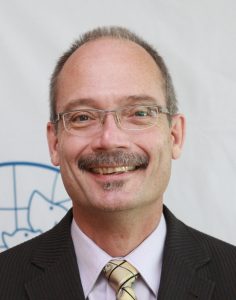WSAVA Launches Campaign to Secure Equitable Access to Veterinary Therapeutics for Veterinarians Globally

The World Small Animal Veterinary Association (WSAVA) has launched a campaign to secure equitable access to veterinary therapeutics for veterinarians. Several leading veterinary associations have already responded to its call to sign its Position Statement on the issue. The WSAVA is also forming a Therapeutics Guidelines Group (TGG) to spearhead its efforts to improve access to veterinary therapeutics.
The WSAVA, which represents more than 200,000 veterinarians worldwide through its 105 member associations, has launched the campaign to address long-standing problems experienced by companion animal veterinarians in some regions of the world in gaining access to the veterinary medicinal products they require to provide a high level of patient care. It says that these inequalities stem from a variety of factors but are commonly the result of financial or regulatory issues.
The WSAVA’s Position Statement was drawn up following concerns raised by WSAVA member associations during discussions at WSAVA Member Forums during 2017. The Federation of European Companion Animal Veterinary Associations, the Federation of Asian Small Animal Veterinary Associations, the Federation of Asian Veterinary Associations, the Federación Iberoamericana de Asociaciones Veterinarias de Animales de Compañía, the Commonwealth Veterinary Association and HealthforAnimals, the global animal medicines association, have already become co-signatories in view of their mutual concern over this issue.
The TGG is currently being formed and will comprise individuals with global expertise in the area. It will work towards goals including:
- The development of minimum standards for a veterinary hospital pharmacy to ensure it can support a veterinarian’s ability to provide an appropriate standard of care
- Monitoring issues relating to access to veterinary therapeutics and recommend solutions using an evidence-based approach
- Engaging global stakeholders to raise awareness of the issue and build a collaborative approach to resolve the issues.
Commenting on the WSAVA’s campaign, its President Dr Walt Ingwersen said: “The ready access by veterinary professionals to diagnostics and therapeutic modalities is the foundation of proper patient care. The frequent frustration that many of our members experience in accessing the products they need is a real concern. It has a significant impact on the quality of veterinary treatment that many of them can provide with the result that many thousands of animals do not receive optimum care.
“We’ve been working in this area for some time, for instance, through our Global Pain Council’s campaign against the international scheduling of ketamine. We have also developed a minimum analgesic position statement. This campaign is the next step in tackling this serious global welfare issue and we will announce further activities, including a summit of key stakeholders to coincide with WSAVA World Congress in Singapore.”
Dr Wolfgang Dohne, President of the Federation of European Companion Animal Veterinary Associations, added: “We fully support this campaign. In Europe, too, there is much room for improvement and we need to raise awareness among decision makers, as adequate access to a broad veterinary therapeutic arsenal is essential for animal health and welfare.”
Dr S Abdul Rahman, Executive Director of the Commonwealth Veterinary Association, said: “The WSAVA’s campaign will greatly benefit veterinarians around the world, especially in the developing countries. We are very pleased to be associated with it.”
“The WSAVA’s new campaign will be a great step towards solving inequitable access to animal medicines,” added Mr Carel du Marchie Sarvaas, Executive Director of HealthforAnimals. “Companies are developing breakthrough treatments but it means nothing unless they can reach veterinarians. We’re proud to stand alongside WSAVA and support its call for action.”
Dr Ingwersen added: “Our TGG will provide evidence-based recommendations and guidelines concerning access to veterinary therapeutics. We are delighted that some of our member associations have already signed our Position Statement and urge others and the wider veterinary community to join with us to help to bring about much needed change.”
For further information:
Rebecca George, George PR
Tel: 01449 737281/07974 161108 or rebecca@georgepr.com
